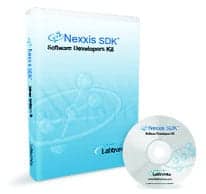Norchem has developed a lab-based test that definitively confirms the presence in urine of JWH-018, JWH-019, JWH-073, and JWH-250, the four most commonly seen forms of synthetic marijuana, street named Spice or K2. The test was developed primarily for the criminal justice system including drug courts, probation, parole, and treatment centers. Recent testing research at the Arizona lab also reveals increased abuse and geographical trends of fake marijuana.
The new marijuana-like drugs, often called Spice or K2, are chemical compounds that mimic the hallucinogenic effects of marijuana but are much more powerful. There are 12-14 new drugs in this category and depending on the drugs’ properties and how they are applied (typically spraying on tobacco, potpourri or herbs), they can be between 5 and 700 times more powerful than marijuana. Symptoms such as elevated heart rate, intense anxiety, agitation, and even seizures or convulsions have been observed.
Routine drug screenings, like Enzyme Immunoassay (EIA) and Enzyme-Linked Immunosorbent Assay (ELISA), do not detect the presence of Spice/K2. They are sold in smoke shops, head shops, and convenience and liquor stores throughout the United States. Because of its widespread availability, Spice can be purchased by anyone in the general public including employees, students, and individuals that are court ordered to not use mind or behavior altering substances.
"We’ve re-tested several hundred randomly pulled specimens from our laboratory and found that over 60% detected the presence of synthetic cannabinoids," commented Bill Gibbs, Norchem CEO. "These specimens had previously tested negative for drugs of abuse. We consider this significant abuse, three to four times the rate of other illegal compounds that we routinely test. We also have compiled key geographic trends where abuse of Spice/K2 is very prevalent, mainly Nevada, Colorado, southern Arizona, Kansas, and southern California."
Source: Norchem



